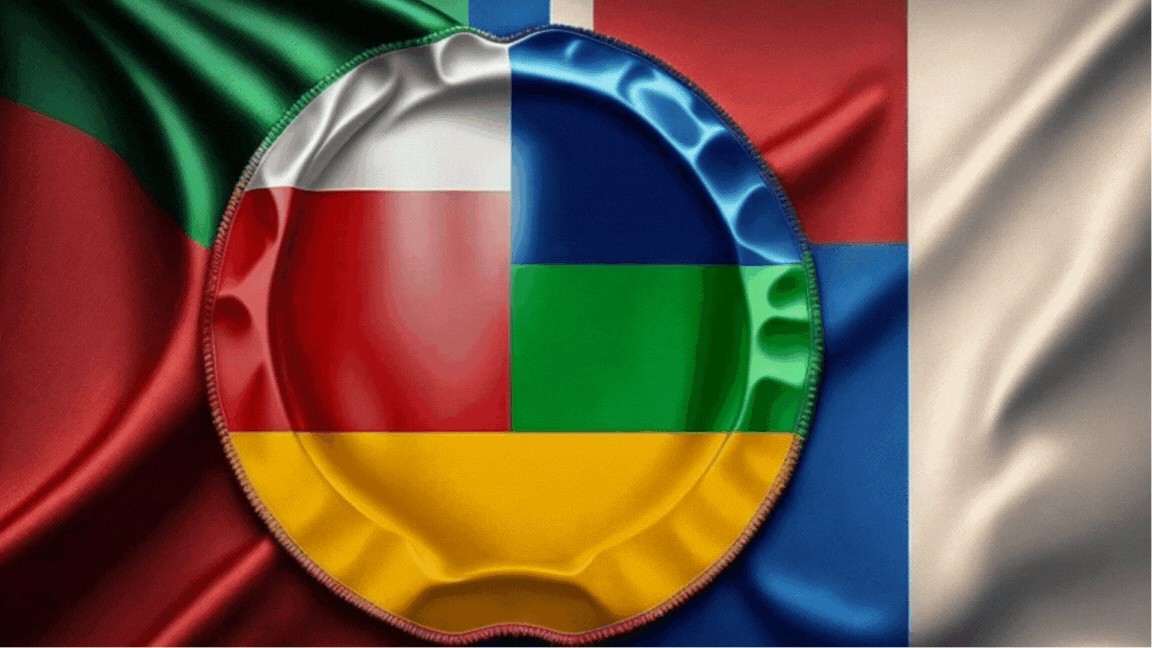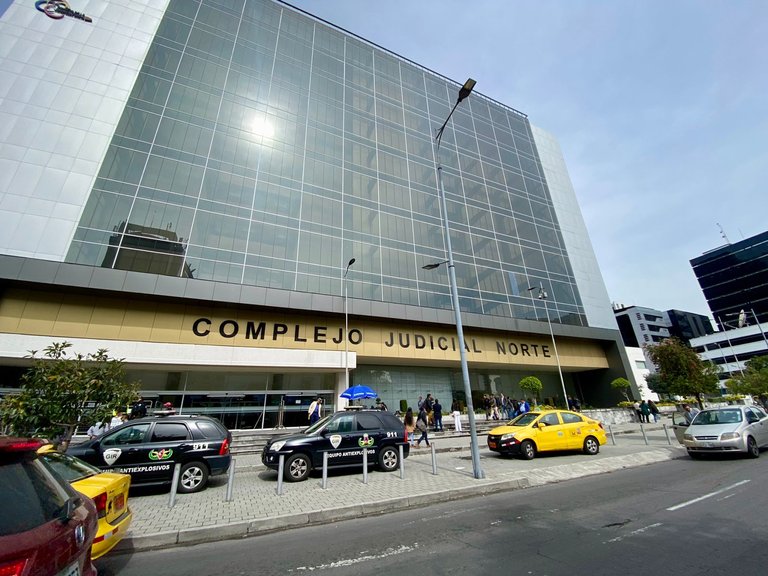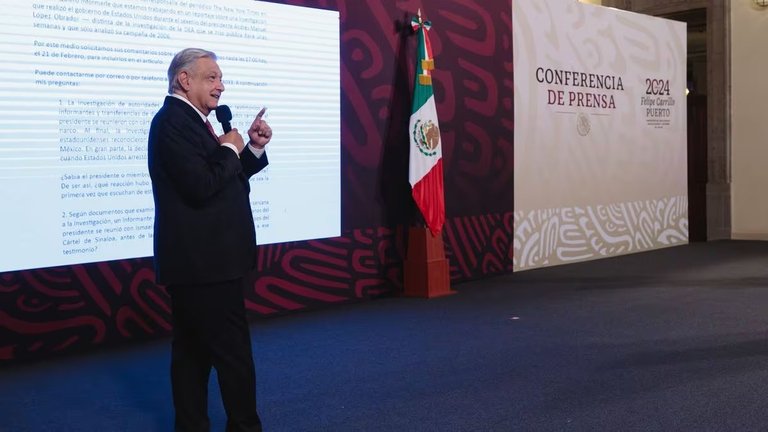
Fernando Villavicencio and a failed justice system
Six months later, Ecuadorian authorities announced that five suspected participants in the plot that took the life of Ecuador's once-awkward presidential candidate Fernando Villavicencio will finally stand trial. A sixth suspect has been released. Villavicencio, let's remember, was mercilessly assassinated on a flagrant afternoon last August in the nation's capital itself, at the hands of cutting-edge effective hitmen from Colombia, of whom one, the teenager who effectively killed him, died in the action, while seven others were found dead in dramatic fashion in two penitentiary institutions.
The thing is that Ecuadorian justice takes its time. The Public Prosecutor's Office alleges that a faction of the criminal gang known as "Los Lobos" ordered the physical elimination of Villavicencio from the indomitable prison system. One of the gang's top leaders fled in January after being arrested some 72 hours earlier amid shady accusations of an intent attempt on the Attorney General's life. The head of the "Los Choneros" gang, potentially the most dangerous in the country, also fled from a medium-level security prison at an undetermined date between the end of the past year and the beginning of this one. Their whereabouts have been unknown since then, in an embarrassing dynamic for Daniel Noboa's government.
 Here was held this Tuesday the preparatory hearing of the trial against the six defendants who are still alive out of the fourteen that at first were part of the criminal file (source).
Here was held this Tuesday the preparatory hearing of the trial against the six defendants who are still alive out of the fourteen that at first were part of the criminal file (source).López Obrador pressures Biden to take sides
The Mexican president has questioned his attendance at the next session of the forum that he is a member of along with his North American peers, as he understands that in some way the Biden administration is complicit in the allegations that have surfaced in recent weeks linking him—at least indirectly—to drug trafficking. "If there is no respectful treatment, I will not participate. Besides, I have only seven months to go and I don't like to travel much," said AMLO. As I have said before, I don't put my hands in the fire for him or any politician, but in principle, I find it difficult for the accusations against him to be true, especially when no evidence has been produced that directly links him to dirty money in a conclusive way. At the same time, the veteran politician's argument that these allegations—here you can find the latest, via NYT—may have a political purpose is plausible, given that the country is in the midst of an electoral process in which his party appears to have a strong position heading into the presidential election.
"I would like President Biden or his advisors, (and) Prime Minister Trudeau, to know about the 'AMLO, president narco' campaign; they have the way to know how these campaigns are put together so that they do not participate in favor of this dirty war," he demanded. "We have always treated the authorities of Canada and the United States respectfully. We do not deserve mistreatment or that the prestige of Mexico, of its authorities, which, unlike before, were elected legally and legitimately, without electoral fraud, be tarnished". The North American Leaders' Summit is to be held next April in Quebec. With Canada, there is, by the way, another (diplomatic) front open, insofar as they are discussing the elimination of the free visa benefit enjoyed by Mexican citizens, something that could be related to a demand of Foggy Bottom under the argument that it would be exploited to enter illegally to the United States. Migration and the fight against fentanyl trafficking are two points of the common critical agenda between the United States and Mexico that somehow shapes the attitude of the White House.
 Source
SourceCuban authorities lead the country down a corniche
Havana has finally decided to move forward on the road to "sincere" some key prices in the economy, such as fuels. Gasoline, both regular and special, will go up by more than 520%, in a strong adjustment that will cause an earthquake in the worn-out economies of citizens, increasingly unprotected in the face of unparalleled inflation. The value of the dollar has registered historical values so far this month and does not seem to have a ceiling to prevent it from continuing to rise. The increase will take effect on March 1 and also includes a 25% one in electricity rates for high consumers (above 500 kwh). The Minister of Economy was surprisingly dismissed from his position at the beginning of this month, in a succession of comings and goings that do not transmit security in the command of this and other critical portfolios for the socio-political stability of the country.
 The private sector mobilizes resources that the State increasingly lacks (source of the image).
The private sector mobilizes resources that the State increasingly lacks (source of the image).The situation is so tense that, as confirmed by EFE news agency, the country has asked the UN World Food Program for help, seeking support to sustain a historic system of rationed food distribution, particularly the allocation of powdered milk for children under 7 years of age. Under difficult conditions because of both the strong grip of U.S. sanctions, and the low capacity of the authorities to respond, the delivery of this sensitive product has been interrupted for the first time that I can remember. The private sector has availability of the product but at prohibitive prices for most of those who need it. A critical deficit of wheat flour has also been informed for March, and annoying power outages persist due to the "tenuous" inflow of fuels into the country and the rickety generation infrastructure, which operates based on periodic patches. The country has been left alone, adrift from the insufficient aid sent by allies such as Venezuela, Mexico, and Russia. Lavrov was just in Havana reviving old dreams of Russian exports and credits that have not just landed, like him, on Cuban soil.
Milei vs. governors: assault # ?
It is not known how this pulse will stop, but, as I always like to point out, the most important thing here is that the people do not take the concrete blow, as is happening. That the people are not the ball played by Milei and the governors, including some of the party that decisively helped him to oust worn-out Peronism from the Pink House. The interruption of allocations to the provinces from the central government has generated important threats such as the one expressed by the governor of Chubut, who announced a boycott appealing to the critical role his province plays in the supply of oil, escorted by five other governors.
This chapter began after the derailment of an ambitious legislative project promoted by the Executive, which contained a good part of the economic deregulation and representative adjustment program with which Milei came to power. The liberal leader has branded as "traitors" those who did not support his effort, and in apparent retaliation has zeroed certain transfers that generally went to the provinces, like those associated with a fund that served to supplement teachers' salaries. This March 1, Milei is expected to address the nation with important accusations against Peronism, and to warn that, although "hard months" are ahead, he is confident that "there is light at the end of the tunnel".
And this is all for our report today. I have referenced the sources dynamically in the text, and remember you can learn how and where to follow the LATAM trail news by reading my work here. Have a nice day.


That's quite a dig at the current US administration.
Thanks!